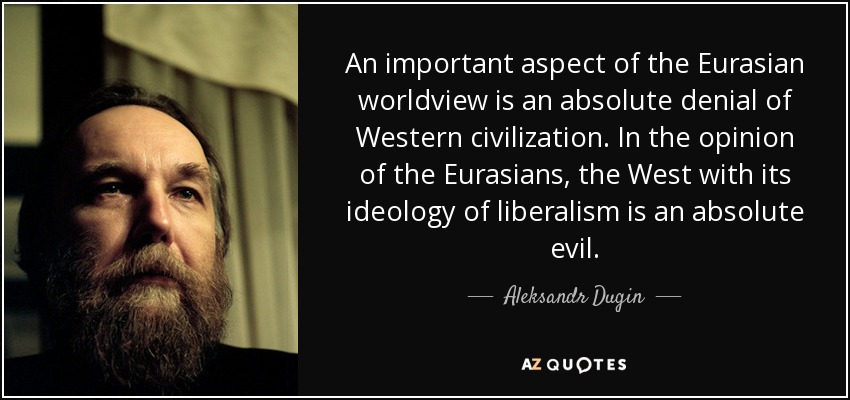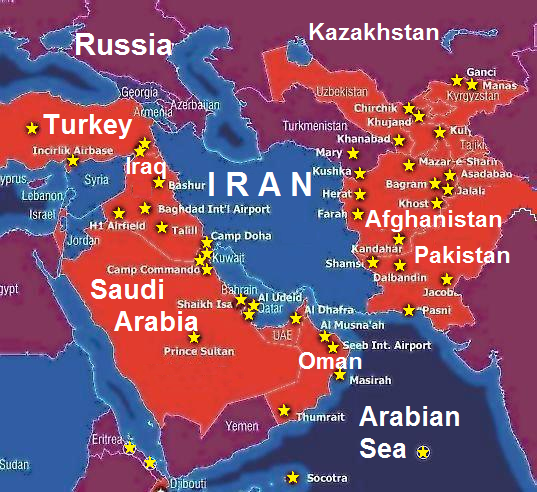Oppositioaktivisti huutelee Brysselissä, että Putin tulee. Tämä vuosi on ratkaisevin Ukrainan kannalta.. Jos Poroshenko menee, niin Putin tulee.
Mies puhuu myös kovasti siitä, että Baltit on seuraava kohde, mutta ei puhu kuinka se käytännössä tapahtuisi koska Nato.
Kuitenkin Ukraina täytyy taputella tänä vuonna.
Putin Will Come: Warning From The Russian Opposition
January 17th, 2017. \\
Politics. \\ Tags:
Russia,
Ukraine,
NATO.
‘Putin said that the biggest geopolitical tragedy of the 20th century was the collapse of the Soviet Union. His goal is to rebuild a new empire - not a Soviet empire, but Putin’s empire.
Not as a united country, but with Russia at the centre, with influence over the surrounding countries, the former countries of the Soviet Union, which in Putin’s view, should come under the influence of the Kremlin. First of all the European post-Soviet countries - Ukraine, Moldova, Belarus, the Baltic countries…’ - Ilya Yashin.
In an exclusive interview with EU Today in Brussels , prominent Russian opposition politician Ilya Yashin, declared by Amnesty International to be a ‘
Prisoner of Conscience’, and the former close ally of Boris Nemtsov, who was brutally slain outside the walls of the Kremlin in 2015, issued a stark warning about the ambitions, and the immediate intentions, of Vladimir Putin.
He believes that if Putin is not stopped in Ukraine, then it is the Baltic states - Estonia, Latvia, and Lithuania - that will be next in his sights.
‘Putin has two main geopolitical priorities,’ he told EU Today.
‘Firstly to weaken the European Union by undermining it’s unity, its solidarity. His second goal is to discredit the NATO alliance. That is why I believe the Baltics are his next targets. If he can cause the Baltic states to succumb from within, he will demonstrate that NATO is unable to resist his hybrid warfare tactics, and cannot defend its members. It will be the end of the alliance. This is why I believe that Putin must be stopped in Ukraine, because otherwise he will go deeper.’
One Kremlin tactic that Yashin highlighted to the Brussels press corps is the manipulation of the oligarchs. He drew attention to the case of former Ukrainian parliamentarian and gas baron Alexander Onishchenko, who, following allegations of corruption, fled the country.
The Russian born oligarch and politician is charged with organising the embezzlement of state funds in a joint programme with the gas company UkrGasVydobuvannia; a scheme which allegedly led to losses of around £50m to the state. Police have seized 10 apartments, nine houses, 10 pieces of land, 39 bank accounts, and 11 cars belonging to him, and to his suspected accomplices.
Mr Onishchenko claims that the case is fabricated and politically motivated.
From his new base in the UK, where he is said to be seeking asylum, he has made allegations of his own against the government, claiming that he was forced to pay a bribe of $6 million to support the candidacy of President Poroshenko, although by his own admission he cannot prove this.
He has, however, admitted that he himself organised a propaganda campaign against the elected Prime Minister Arseniy Yatsenyuk .
“I killed him in one year,” he boasted. He funded anti-Yatsenyuk protest rallies, paid for ultra-right nationalists to carry out anti-government actions, and paid media outlets to run anti-Yatsenyuk stories.
‘I believe that the Onishchenko case will be one of the key Kremlin operations against Ukraine this year’Yashin stated. ‘
He was a key oligarch in the close circle of (former president)
Yanukovytch. He hates the current Ukrainian government, and he is prepared to use his own wealth to gain political and media support.
‘Also, if we look at Russia’s propaganda machine, we see that over the last two months he has become the main speaker, in that media, against Ukraine. Russia understands the Ukrainian mentality: whilst people accept the economic crisis as the cost of being an independent country, they will not accept disrespect from their politicians. So through Russian media Onishchenko says that he has tapes, recordings of conversations with Poroshenko, where the president says bad things about the Ukrainian people. I don’t believe he has these things, because if he did they would be published immediately. This is an example of how fake news is used.
‘This is a critical year for Ukraine. Europe and the US are currently focussed on domestic problems such as elections and Brexit: Ukraine has slipped off the agenda. Now is the time for Putin to attack. The Kremlin will do everything it can to get back control of Ukraine this year. Not next year, this year.
If Poroshenko goes this year, Putin will come.’
http://eutoday.net/news/yashin






